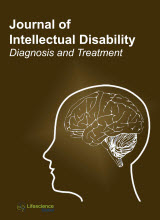jiddt
|
|
Abstract: The reorientation of society to the market relations was required major changes in the system of vocational education. When employment, the employer is interested not store of the oretical knowledge of graduates of higher and secondary special educational institutions, but their preparedness to fulfillment of professional activities in this area. In connection with these requirements of employers and society in our country, were started the implementation of dual system of education. Keywords: Duality, self-realization, employer, institution, training, enhancement.
|
|
|
Abstract: Research on the autism spectrum (AS) has expanded tremendously over the last two decades with exciting insights into underlying neurobiology. Neuroplasticity, the remarkable ability of the brain to form new connections as a result of experience, is not limited to specific parts of the brain nor does it have a time limit meaning that growth and learning are on-going processes. In this review we explore the impact of the attitude of acceptance, enthusiasm and learning through motivation on brain development in children on the AS. The first part of the review focusses on the impact of attitude on social, emotional and cognitive development, while the second part focusses on the impact of attitude on brain biology. Keywords: Autism, attitude, acceptance, enthusiasm, motivation, neurobiology. |
|
|
Abstract: The article presents the analysis of the components of monitoring as one of management tools for the higher education (HE) system at macro- and micro-levels. The aim of the article is to identify problems of its organization and implementation in the system of professional education on the whole and in higher educational institutions in particular, as well as to analyze the application prospects of monitoring. The conducted research has revealed that although monitoring techniques have been used in the education system widely and for a long time, insufficient account has been taken of opportunities emerging from their direct impact on the effectiveness of education quality. In using monitoring as a tool for assessing higher education quality, various problems arise. Monitoring, in this case, is not a universal tool; but if it is adequate to the existing conditions and its results are correctly used, it can essentially improve the quality of the education process and of its outcomes. Keywords: Managing quality, quality in Education, quality Management.
|
|
|
Abstract: This study aimed to show the significant relationships between emotion and behavior variables among throughout the behavioral modification learning processes in individuals with Autism Spectrum Disorder (ASD). A quasi- experimental research design pre- tests - post- test was realized. A total of 10 years old children with ASD level 1, who have been distributed into two groups, an experimental group (n= 5), whom a sensory integrated behavior program was applied and a control group (n=5), whom a behavioral modification “Stimulus”- “Response”- “Readjustment” (S-R) program has been applied. Results found through Mann-Whitney U Test and Pearson Correlation Test showed that there´re significant differences between both groups and, above all, great relationships are indicated between the emotional and behavioral variables found as a result of the learning process. Keywords: Autism Spectrum Disorders, Behavior, Emotion, Sensory Integration. |
|
|
Abstract: This study was conducted to investigate the memory strategy for serial recall in adults with general intellectual disability (ID) using the picture memory span task. Relations between memory strategies and two aspects of intellectual abilities, i.e., verbal and nonverbal abilities, were investigated. Study participants were 19 adults with general ID (i.e.,ID of unknown etiologies). The picture memory span task, which can assess features of memory coding, was administered under four conditions: control, visually similar, phonologically similar, and long-name condition. The picture vocabulary test – revised (PVTR) and Raven color progressive matrices (RCPM) were conducted. Performance on the picture memory span task revealed that participants with ID used visual and verbal strategies for memory coding. Individual differences in verbal ability were interrelated with the degree of verbal strategy use. Results of this study suggest that features of memory coding of adults with ID do not contradict their level of intellectual development. Keywords: Intellectual disability (ID), memory coding, picture memory span task, verbal abilities, nonverbal abilities. |


